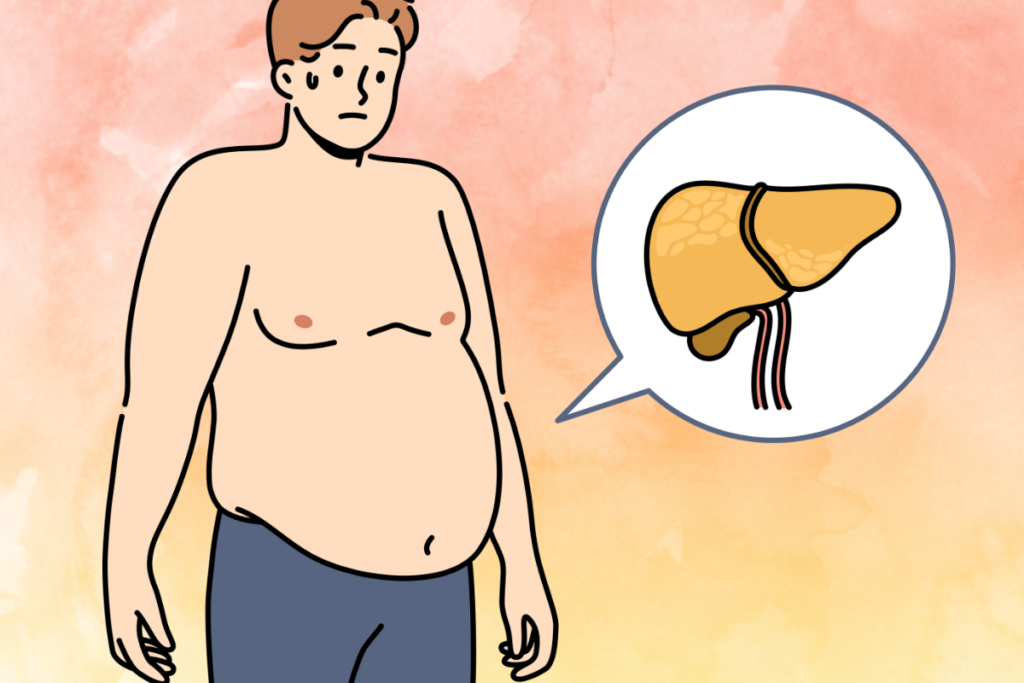Cirrhosis is a severe liver condition that results from long-term liver damage caused by various factors such as chronic alcohol use, viral hepatitis, and non-alcoholic fatty liver disease (NAFLD). It leads to the scarring of liver tissue, impairing liver function. Early detection and proper management are important in slowing its progression and preventing complications.
What is Cirrhosis?
In the long run, repeated liver damage leads to cirrhosis. When good liver tissue is replaced by scar tissue, the liver cannot function as it should. Complications such as varices (enlarged veins), liver failure, and a higher risk of liver cancer may result from this. Because early symptoms can be absent or minimal, cirrhosis is frequently discovered in its later stages.
Symptoms of Cirrhosis:
As cirrhosis progresses, symptoms may become more pronounced. Common symptoms include:
● Fatigue: Unexplained tiredness or weakness.
● Jaundice: Yellowing of the skin or eyes.
● Abdominal Swelling (Ascites): Fluid accumulation in the abdomen, causing a swollen belly.
● Itchy Skin (Pruritus): Caused by bile salt accumulation in the skin.
● Easy Bruising and Bleeding: Due to reduced production of clotting proteins by the liver.
● Appetite Loss and Unexplained Weight Loss: A general feeling of fullness or discomfort in the abdomen.
Causes and Risk Factors:
1. Chronic Alcohol Abuse: Long-term excessive drinking can lead to alcoholic cirrhosis.
2. Chronic Viral Hepatitis (B and C): These infections cause inflammation and liver cell damage, increasing the risk of cirrhosis.
3. Non-Alcoholic Fatty Liver Disease (NAFLD): Linked to obesity and metabolic syndrome, NAFLD can progress to cirrhosis in severe cases.
4. Genetic Disorders: Conditions like hemochromatosis (excess iron buildup) or Wilson’s disease (excess copper buildup) can contribute to cirrhosis.
Treatment Options:
1.Lifestyle Modifications:
● Avoid Alcohol: Stopping alcohol intake is essential to prevent further liver damage if cirrhosis is caused by alcohol addiction.
● Healthy Diet: Eat plenty of fruits, vegetables, and lean protein.
● Weight Management: Losing weight can improve liver function, especially in patients with NAFLD.
2. Medications:
● Antiviral Medications: For those with hepatitis B or C, antiviral medications can help slow liver damage.
● Diuretics: Medications to reduce fluid buildup in the abdomen.
● Lactulose: Used to treat liver-related encephalopathy (brain dysfunction due to liver failure).
3. Liver Transplant:
In advanced cases where liver function deteriorates, a liver transplant may be necessary to save the patient’s life.
FAQs
Can cirrhosis be reversed?
Cirrhosis is generally not reversible, but with early intervention and proper management, liver damage can be slowed, and complications can be prevented.
Can a person live without a liver?
No, a failed liver can have many deadly complications. End-stage liver failure may be managed through a liver transplant, which can restore a large portion of function.
How can I prevent cirrhosis?
Limit drinking too much, keep a healthy weight, and get a hepatitis B vaccination. Cirrhosis can also be prevented by lowering cholesterol levels and diabetes.
Disclaimer:
This information is for educational purposes and should not replace professional medical advice. Always consult a healthcare provider for personalised recommendations.
How HealthPil Can Help:
HealthPil connects you with hepatologists who specialise in cirrhosis treatment and liver care.

